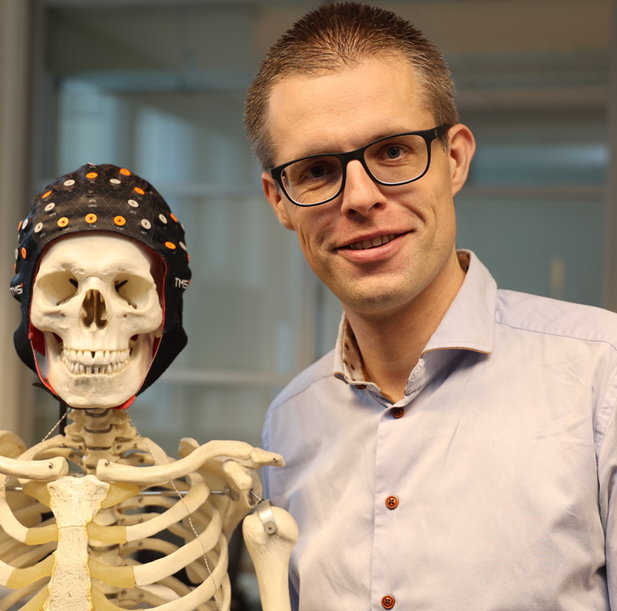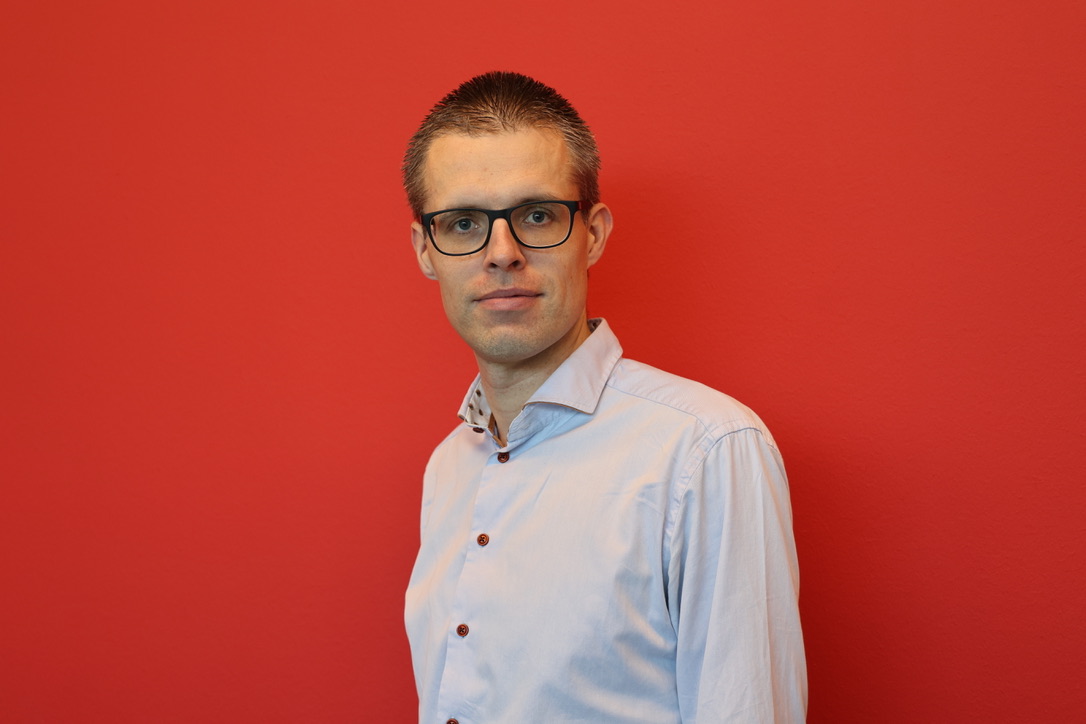Mark van de Ruit
What exactly do you do at the cutting edge of technology and healthcare?
When assessing the presence of neurological disorders, doctors rely on subjective and arguably unreliable clinical scales. However, the neurological system is enormously complex, with many structures interacting with each other. Subjective assessments will not be enough to unravel this. Of course, there are increasingly modern imaging techniques (e.g. MRI), but real progress in easily and purposefully identifying problems in the functioning of the neurological system is still a long way off. That's where I want to make a difference.
Using modern measurement techniques such as brain imaging (EEG), and robotics, I am developing new methodologies that will allow us to understand the neurological system much better, and give the doctor a tool with which to optimise the treatment of neurological disorders. These might include cerebral infarction or Parkinson's disease, and migraines too. The main challenge here is to develop methods that are easily accessible and usable by the people who will work with them on a daily basis.
I chose mechanical engineering for my Bachelor’s programme because I was immensely attracted to where engineering and healthcare intersect even then. Graduating in biomedical technology was also on my mind. And now, like my health ambassador Wouter Serdijn, I work on biomedical applications. But he works more on developing new measurement and stimulation techniques while I am more concerned with how we can cleverly use these techniques to learn about the neurological system. This is enormously challenging, and I get a lot of pleasure out of it.

What is your impression of the medical world?
We speak different languages, we think in different ways. As an engineer, you have to keep this in mind all the time. This is why it is sometimes difficult to convince healthcare professionals of the added value that technology offers. From my engineering background, I always look at how we can cleverly measure and inspect the system (the brain) to get relevant information, whereas for the doctor what matters most is the result, what it means for the patient.
However, the medical community is certainly open to technology-based solutions. I therefore experience the cooperation with healthcare professionals as very positive. The same goes for patients, who are enthusiastic about participating in research. Not just for themselves, but especially for others who may benefit in the long run.
Do you have a top tip for engineers who work in the medical field, or who would like to do so?
Especially in the early stages of your work with a doctor, it is to listen and to ask questions. Don’t pontificate on everything you know and are able to do. What is important for you is to bring the real clinical problem to the surface. At that point, they want to know in broad terms how you are going to approach it. Details can be given later.
Also get to know your patient population well. Visit the ward and join a consultation hour so that you can see how different the pathologies are. On paper, they may all look the same to you, but one stroke patient is not the other.
